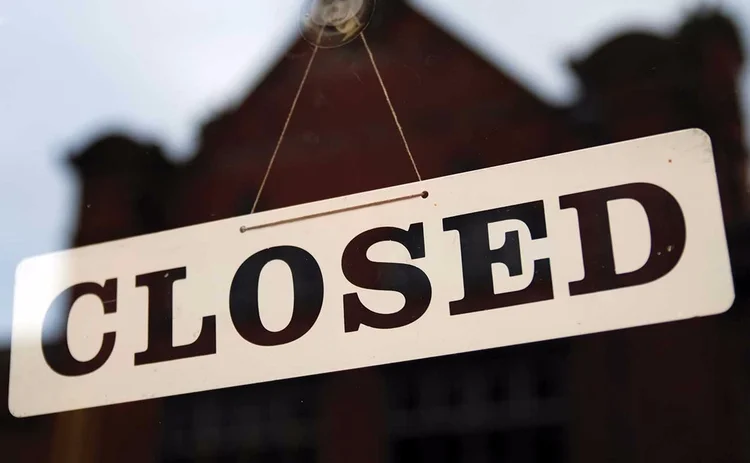
Analysis: Policyholders band together as BI group actions mount

Ecclesiastical, Hiscox, QBE and RSA could all face class actions from businesses that have had claims for losses from coronavirus-related closures rejected as policyholders group together and brokers also come under fire.
Until now, the fallout from the non-payment of Covid-19 business interruption claims has focused on carriers: Hiscox faces a challenge from an action group of more than 135 claimants, while a group of about 60 nightclubs plan to dispute claims rejected by QBE.
Post has also learned that the coverage of policies underwritten by RSA and provided through Gallagher’s Cottagesure product is being disputed by a group of around 50 claimants.
However, brokers have also been warned that they may come under fire from clients whose BI policies do not pay out.
Jonathan Hartley, a media consultant who started the website Insurance Justice last week to connect businesses disputing rejected claims with legal assistance, told Post that he knew of three different actions being readied against brokers.
Hartley said: “Some of the class actions will actually be against insurance brokers, for professional negligence or misselling. For example, we’ve got people who were sold disease extension policies in March that didn’t cover Covid-19.
“Now, clearly, as a professional, if you’re advising somebody to buy that policy in March, and they’re are a pub or a restaurant, then there’s an arguable claim of professional negligence. That’s particularly true if it was sold this year.”
Hartley set up the website Insurance Justice on Friday after speaking to lawyers once he started getting calls from various businesses which had had claims turned down.
“As I started referring cases on, it became clear that some of the insurance policies were never going to pay out and that is what it is,” he said.
“But others had grey areas and others had really valid claims that insurance companies initially said they would pay out but then said they wouldn’t.”
Approaches
Hartley said on Monday that Insurance Justice had received around 30 approaches, though went on to say that some of these were themselves groups of businesses. One, for instance, was a group of about 50 businesses.
“They’re not massive businesses, but one has a turnover of £6m which isn’t a small number,” he explained.
“A lot of them are pubs and restaurants, but I’ve also had people in tourism industry, IT companies, salons and hairdressers.”
“The reason this is a game changer is before if a business had a valid claim for a relatively small amount, say £50,000 to £100,000, it wouldn’t be cost-effective or viable for a law firm to take that claim on.
“Obviously, with it happening across the country, suddenly you’ve got class actions that are now viable and it basically means that law firms are able to bring multi-party actions that suddenly tot up to a few million pounds.
“It makes it possible for individual businesses to be represented by really top law firms and you need top law firms to go against the big insurance companies.”
Group action
One of the lawyers working with claimants that approached Insurance Justice is Simon Sloane, a partner specialising in dispute resolution at law firm Fieldfisher.
“We’ve currently got three group actions being put together,” Sloane told Post on Tuesday.
Of these, two are disputes over whether cover is provided in wordings from Hiscox and RSA respectively.
The third concerns a group of daycare nurseries that are part of the National Day Nurseries Association. It is as yet unclear whether it will seek to pursue either insurer Ecclesiastical or the broker.
Sloane said: “The class is pretty much formed now and we need to analyse whether it’s going to include both or just the one party. I’d anticipate if we focus only against Pound Gates, they would bring in Ecclesiastical anyway.”
Addressing the potential for group actions against brokers more generally, Sloane said that brokers’ exposure “is probably limited and won’t necessarily be larger than the claims against the insurers themselves”.
He explained: “Given that the Covid-19 cover will only really be triggered under the BI extensions, only those parties and policyholders to have opted for those extensions would be entitled to a claim.
“If their broker has failed to advise them or inform them properly in respect to the applicability of those extensions, then that’s where the potential broker exposure comes in.
“All these extensions are not automatically purchased by many businesses. They are by schools, nurseries, and those in the in the hospitality sector because they always need the notifiable disease extension because it’s a risk that’s higher on their radar.”
Hiscox and RSA disputes
Regarding the group challenging Hiscox, Sloane said: “We’re not related to the Hiscox Action Group, but it’s a similar sort of complaint by policyholders under the same public order cover extension in the BGI policy, which on the face of it would appear to provide cover for losses suffered from order of authority.
“That’s just starting off. We’ve only got three or four but our target is 20 because the limits we’re going for are higher. We’ve been approached by some businesses in the Norfolk area that want to drive it and they are going to develop a local group.”
Hiscox has previously defended itself against challenges, rejecting the Hiscox Action Group interpretation of a public authority clause in its policies in a statement last week.
The insurer also faces a separate challenge from the Night Time Industries Association, which said on Wednesday that it had instructed Philip Kolvin QC of Cornerstone Barristers to advise its members with regard to their coverage under Hiscox policies.
Regarding the group challenging RSA, Sloane said: “That is a group where it was placed through Cottagesure and we anticipate will have over 50 potential claimants looking to recover under that business interruption policy.”
The grounds for the two groups’ wording disputes are much the same as those of groups that have come to light challenging Hiscox and QBE.
“They’re relying on extensions by way of public order or, in the case of RSA, there is a favourable extension for denial of access within a radius of 25 miles, and no exclusion for pandemic or CoV mutations,” said Sloane.
Covid-19 became a notifiable disease in different parts of the UK on different dates, with Scotland moving first on 22 February, followed by Northern Ireland on 26 February, England on 5 March and Wales on 6 March.
Road ahead
Sloane also commented on the likelihood of group actions being settled before reaching a courtroom.
“Ideally, there’ll be some dialogue and negotiation with insurers,” he said. “There are a couple of key coverage issues which insurers will not give up on.
“They will seek to rely on a couple of case precedents that they read in their favour such as Orient Express, which allows them to reduce losses because of the national lockdown even if you have got cover.”
A judgment handed down in 2010 in a case between Orient Express Hotels and Generali allowed the insurer to reduce a claim the hotel chain had lodged following Hurricane Katrina in 2005.
This was because of wide-area damage, or the idea that Orient Express would have still suffered business losses regardless of property damage because the city had been shut down in the face of the hurricane.
Sloane said: “There might need to be a test action to determine the scope of the applicability of the Orient Express case and the wide area damage adjustments for business interruption losses. That’s more of a quantification issue rather than a coverage issue.”
He added: “There’s a lot of opportunities to have that overturned in the Court of Appeal.”
Insurers and brokers respond
A spokesperson for Ecclesiastical said: “We understand this is an uncertain and worrying time for nurseries forced to close because of the government’s measures to limit the spread of Covid-19.
“Our business interruption insurance typically provides cover for loss of income through damage to buildings through events such as fire and flood, though in some instances it does also provide some cover following the occurrence of a pre-specified list of diseases.
“Covid-19 is not included on the list of diseases covered by this insurance. This is because, in common with the majority of the market, our insurance policies are not designed and priced to cover pandemics. It would have made them unaffordable as it is simply not economically viable for an insurer to cover such widespread and unknown risks.
“We are working hard to support our customers through this difficult time where we can. We have made enhancements freely available to our cover to support customers, ensuring there are no changes to premium and policy cover for premises forced to temporarily close as a result of Covid-19.
“We’ve also introduced an automatic extension in cover for 30 days beyond renewal to help protect businesses from becoming unintentionally uninsured. Alongside this, we are showing flexibility and support where logistical issues prevent payment and have produced guidance to help our customers manage their risks during this crisis.
“Going forward, we are ready and keen to work with both the Association of British Insurers and government to find a viable solution so that pandemic insurance is available for all who wish to purchase it in the future.”
Del Sharman, director of Pound Gates, said: “From our perspective all I would add to that statement issued by Ecclesiastical is that as a broker that has specialised in the early years sector for over 25 years we took pro-active steps to communicate to our clients in late February as wanted to be very clear on the cover position from the outset.
“Since then we have been working with Ecclesiastical and other partners to support our clients where we can during this hugely troubling time for the early years sector.”
“We are encouraging affected policyholders to contact their broker if they have questions and for support in registering a claim where appropriate. We’re working closely with our broker partners to help customers as much as possible during this time.”
A spokesperson for Gallagher, which operates the Cottagesure scheme, said: “We are working closely with RSA to help support businesses that are affected by the current situation, and understand this is a difficult time.
“Notifiable diseases are within the scope of the policy subject to its terms and conditions and RSA is reviewing claims from between late February, when Covid-19 became a notifiable disease, to 23 March when all non-essential businesses were closed by the government.
“Losses incurred after this date will not be covered under the policy because they are due to closure of businesses by the government which is not covered under the terms of the policy.
“Customers wishing to make a claim should contact us and we will assist.”
RSA said in a statement: “We understand that many businesses are worried about coronavirus and we’re committed to supporting them.
“Unfortunately, only some businesses under the Cottagesure scheme will be covered for the coronavirus outbreak – those who had an outbreak of the illness at, or near, their premises and had to close as a direct result of that case, rather than as a consequence of the wider government restrictions put in place.”
Hiscox said in a statement: “Hiscox’s core policy wordings do not provide cover for business interruption as a result of the general measures taken by the UK government in response to a pandemic.”
Only users who have a paid subscription or are part of a corporate subscription are able to print or copy content.
To access these options, along with all other subscription benefits, please contact info@postonline.co.uk or view our subscription options here: http://subscriptions.postonline.co.uk/subscribe
You are currently unable to print this content. Please contact info@postonline.co.uk to find out more.
You are currently unable to copy this content. Please contact info@postonline.co.uk to find out more.
Copyright Infopro Digital Limited. All rights reserved.
As outlined in our terms and conditions, https://www.infopro-digital.com/terms-and-conditions/subscriptions/ (point 2.4), printing is limited to a single copy.
If you would like to purchase additional rights please email info@postonline.co.uk
Copyright Infopro Digital Limited. All rights reserved.
You may share this content using our article tools. As outlined in our terms and conditions, https://www.infopro-digital.com/terms-and-conditions/subscriptions/ (clause 2.4), an Authorised User may only make one copy of the materials for their own personal use. You must also comply with the restrictions in clause 2.5.
If you would like to purchase additional rights please email info@postonline.co.uk








